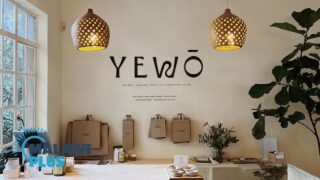Regulation of Importing Second Hand Clothes
Introduction
Malawians indulge in a couple of businesses, among them is the selling of second hand clothes. Government in July 2020 under the Goods Act completely banned the importing of Second-hand underwears.
Business PLUS Malawi talked to the Minister of Trade to give us insight on this development.
Honorable Sosten Gwengwe
Interviewed on April, 2021

| Name | Honorable Sosten Gwengwe |
| Position | Minister of Trade |
Interview
“WE ARE ALSO PUTTING MODELS OF FINANCE TO SUPPORT THOSE IN BUSINESS“
Under the Control of Goods Act (COGA) which came into force July 2020 the government banned the importing of second-hand underwears and regulated a couple of other products.
For the crop side we have selected few cash crops especially legumes like groundnuts, pigeon peas, and soya beans. There are also products like scrap metal, cement, matches sticks and went on with second-hand clothes. The reason behind was to see some of the industries that have potential for example cement, we would want to encourage more players to begin cement manufacturing that is why we stopped importing from Zambia. Therefore, we put restrictions because investors come and might ask that “If I invest billions where will our market come from in your free market.” We put up some regulatory framework (laws) in the country to avoid cheap imports and create a market for investors. The regulations of cash crops are also there because there are markets set up by foreigners in Ngona, Mwansambo and other places buy soya beans and groundnuts smuggle them out the country in the end the country benefits nothing. The restrictions enable us to know who is buying what and who is sending it out, so we can also gain forex. There were targeted to avoid the free-for-all regime that was happening the past few years.
In order for investors to come, they would want to have a signal with the government like what kind of protections and guarantees do we have that a market will be there. We create an opportunity, a need, to stimulate investors to come in. The main reason why most investors have shied away from the textile sector is there is too much dumping of second-hand clothes and presumably there is no market. If I set up a little textile company manufacturing new underware or new shirts the demand is subdued by cheap imports. We try to put a signal to the market that, if need be, we can slow down the issuing of import licensing of these things. But we cannot completely ban even though that is what we would want if there are no alternatives. In the absence of an alternative we still allow, however under a controlled mechanism to attract investors by letting them know that there are laws that we use to protect their investments.
That all depends on the investors that we receive, and what we do with the raw materials like cotton, but we also first need to send the signal and set a tone. For example, a company in Salima called China Africa textile has invested heavily in Malawi and their aim is to use our cotton and go through all the processes up to the point to make a T-shirt made in Malawi. Till we have such investors who are able and ready to do these things locally it will be very difficult to institute any ban because we also have to consider the consumer. The consumer for example has to watch TV, we cannot ban the importation of TVs if there is no capacity domestically to supply the needs of the people. So it’s a balancing act the quicker investors come in, settle down, and if we have the capacity at an adequate level in a way that satisfies the local demand we can start restricting and banning.
In our forums we invite them so we engage them and would want to promote their business to show case what they can do. On the promotion side, we are in a very close contact and from government side, we really want to see and encourage tailoring to take up the space for government to stop importing uniforms for the army, police and nurses and give the business to our local tailors. The model will be that Malawians who have a factory and all the industrial requirements and then you work with the tailors association of Malawi and give them orders. We want some of the things that government imports we want them to be supplied by local small and medium enterprise.
Those challenges are not for Malawi only because every country which needs to develop go through that kind of stages and that’s when patriotism comes, for example the past years China was well known for producing low quality products but now we have seen how they have taken the place of good and high quality products. Even here in Malawi at Mchesi, in the past the kind of furniture they made to compare it with what they are making now, it is a great improvement. It is a process which has an initial cost, what we should focus much is if we are growing or not. As long as we are monitoring with the Malawi Bureau of Standard, the improvement will be with time. The low quality is a cost that we all have to bare.
We do grow enough cotton in Malawi and the government is trying to make cotton prices fair. There is the lower Shire transformation project which is primarily focusing on cotton to improve the supply of raw material especially cotton because if we had enough cotton and have weaving companies for making fabric, then the whole designing sectors would be supported.
I know that challenges of small businesses are many such as lack of finance even lack of markets for now government is trying to open up market and to also make their products available to the government markets. We are also putting models of finance to support those in business and are in need of cash to expand.








